
Maple provides an extensive suite of visualization tools for plots and animations, with over 200 plot types and options. Plots can be created and modified interactively and through commands. Maple 2018 includes a variety of improvements to visualization in Maple.
A frequently requested item, plottools:-arrow and plots:-arrow both have a new option, border, that controls the display of the border around the arrow.
The following example shows the addition of two vectors, A and B.
| > |
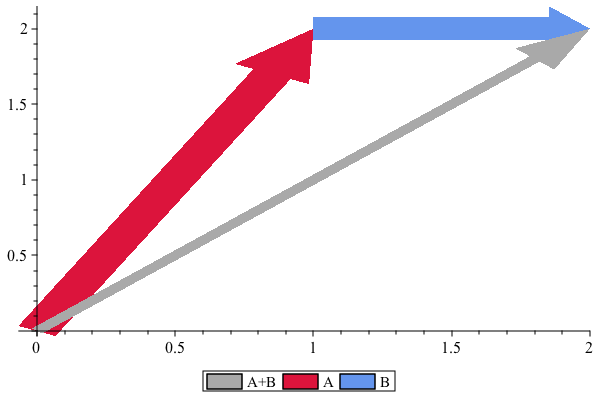 |
Several commands in the ComputationalGeometry package can generate dynamic visualizations including the following Voronoi Diagram:
Additional plot settings can be controlled using commands such as plots:-setcolors.
| > |
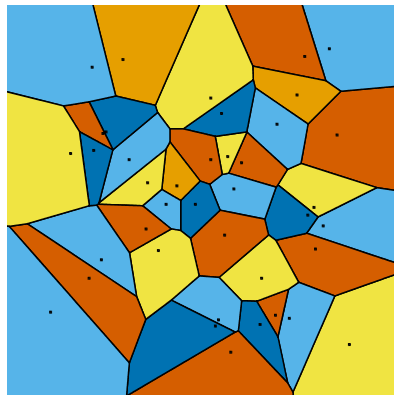 |
The PlotBuilder provides an easy mechanism for creating and customizing a wide variety of plots. In Maple 2018, you can now use the Plot Builder to generate plots for inequalities.
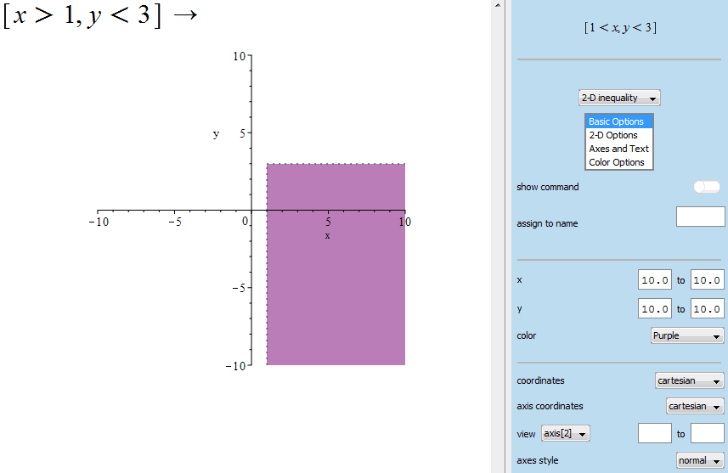
Rotatable tickmarks
Tickmarks in plots have a new suboption, rotation, which makes it possible to rotate the angle of the tickmarks.
| > |
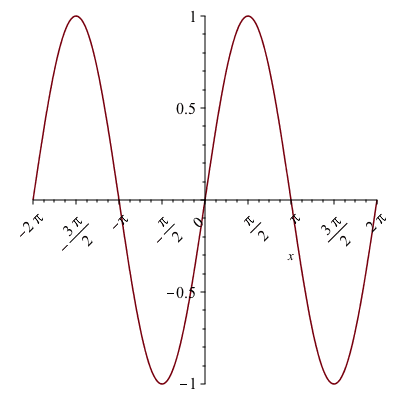 |
Several plots have been updated to use this by default, including plots from the TimeSeriesAnalysis package:
| > |
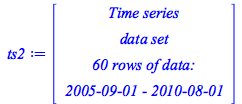 |
| > |
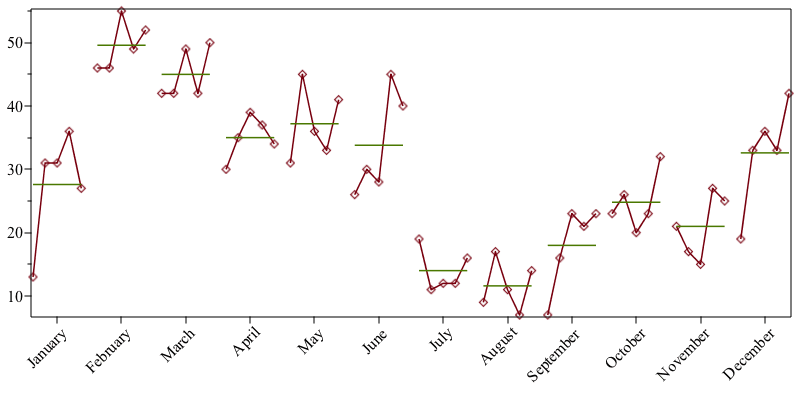 |
Rotatable textplot
The plots:-textplot command has also been updated to accept the rotation option.
![]()
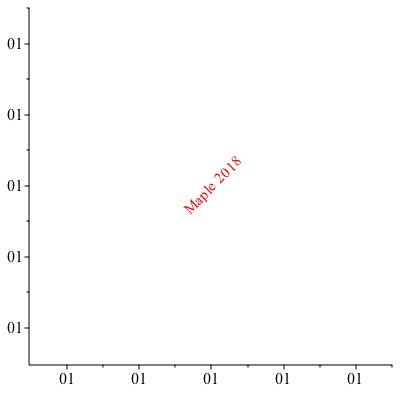 |
The ParetoChart command generates a plot of a tagged histogram of decreasing values and a curve indicating the percentage cumulative sum of the values.
| > |
 |
| > |
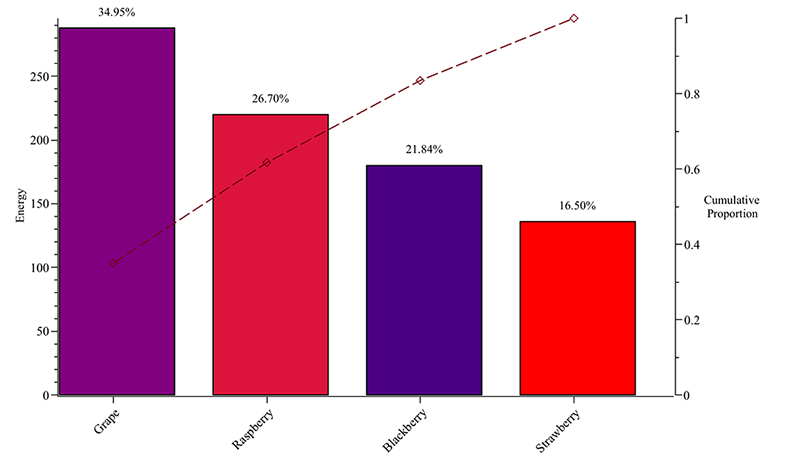 |